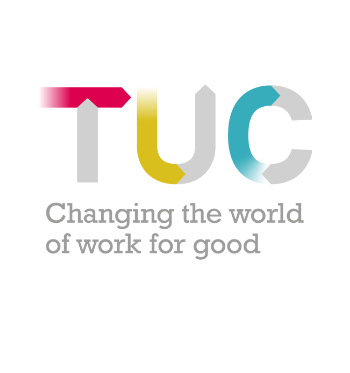
Sexual harassment at work - why it's time to change the law
- Over thirty organisations have joined our #ThisIsNotWorking campaign to call for an end to sexual harassment at work.
- The current system relies on victims to report incidents of harassment at work to their employer after it happens.
- We're demanding the government change the law to make employers responsible for preventing harassment in the first place.
The 2017 Harvey Weinstein scandal and the #MeToo movement it sparked has helped to expose the shocking impact of sexual harassment in society.
Almost two years later, you might think that things would have changed. But every day, people across the UK are still experiencing sexual harassment and assault.
Sexual harassment can happen to anyone, anywhere, at any time. Yet all too often, it happens in the workplace.
We know this because of the work we’ve done in recent years to expose the shocking reality of working life for far too many people.
That reality proves that the current legal protections, which rely on victims to report incidents of harassment at work, aren’t working.
That’s why we launched the #ThisIsNotWorking campaign to end sexual harassment at work once and for all.
Instead of putting the onus on victims to come forward, we want the government to change the law and make employers responsible for preventing harassment in the first place.
Because we don’t think it should be down to the individual to prevent and manage their harassment alone.
And just days after we launched our campaign, the government has today announced a consultation on sexual harassment in the workplace to look at whether the current laws do enough to protect workers.
Our campaign is working, but we must keep up the pressure on the government to act.
If you agree, sign our petition now.
A hidden epidemic
Sexual harassment has no place in the workplace, yet it’s still rife in the UK across all industries and sectors.
Over the last few years, our research has lifted the lid on this hidden epidemic.
Before the #MeToo movement swept the globe, our 2016 Still Just a Bit of Banter report revealed that more than half of women have experienced some form of sexual harassment at work.
Last year, we published Not Part of the Job , a report into the harassment that younger workers face from ‘third-parties’ such as customers, clients or patients.
And just a few months ago, landmark new TUC research found that almost 7 in 10 LGBT people had experienced at least one form of sexual harassment at work.
Why is this happening?
Put simply, because the current system of tackling sexual harassment at work isn’t working.
Far too many employers treat harassment as an inevitable part of working life perpetuated by one or two rotten apples.
But we think it stems from structural inequalities and flourishes because of workplace cultures, with devastating consequences for millions of workers.
The current system relies on those who experience harassment to come forward and report what’s happened to their employer before any action is taken.
But our research shows that four out of five women who’ve experienced sexual harassment at work don’t feel able to report it to their employer.
There can be other barriers to reporting. Two-thirds of LGBT people didn’t feel able to report being harassed, with one in four saying they didn’t raisie the issue with their employer for fear of being ‘outed’ at work.
So what do we want to change?
We don’t think it should be up to the individual alone to hold the perpetrators and employers to account on workplace sexual harassment.
Sexual harassment at work is a systemic problem, and it needs a systemic response.
Employers already owe their workers a duty of care, but there is currently no statutory duty on employers to prevent harassment before it happens.
So that’s what we’re demanding: a new, easily enforceable legal duty on employers to take all reasonable steps to protect workers from sexual harassment and victimisation.
If they fail to take these steps, this should constitute a breach of the Equality Act 2006, which would mean the EHRC could take enforcement action.
These changes would shift the burden of dealing with sexual harassment from individuals to employers.
And it would place the emphasis on changing workplace cultures, rather than the all too often defensive responses to individual complaints.
The new duty would also empower anyone who feels that an organisation is not taking the necessary steps to prevent sexual harassment to report it to the EHRC, regardless of whether any harassment has occurred.
What steps would employers have to take?
The duty would be underpinned by a new EHRC code of practice that would outline the reasonable steps employers must take, giving employers much needed clarity on what they need to do to tackle sexual harassment.
This is likely to include:
- Developing and implementing a zero-tolerance policy against sexual harassment.
- Holding mandatory training for managers and workers so they know what sexual harassment is, what their rights are and how to report any experiences to the company.
- Communication of the zero tolerance policy during induction.
- Establishing a clear, trusted reporting system for workers experiencing sexual harassment which includes prompt investigation.
- Protecting workers from further harassment after they report harassment.
- Respecting workers’ right to organise in their workplace.
We will also call for a review into the time limit to bring complaints and to extend the rights of employment tribunals to make wider recommendations for the workplace in sexual harassment cases.
Consultation launched
We’re not alone in demanding change. Both the Equality and Human Rights Commission and the Women and Equalities Select Committee of the House of Commons agree that the system isn’t working.
And more than 30 organisations have joined the #ThisIsNotWorking alliance to demand government action.
More than 10,000 people have also signed our petition asking for the government to change the law.
Just one week after it was launched, the government announced a consultation on a ‘gender equalities roadmap’ to empower women.
And today it has launched a consultation on ending sexual harassment in the workplace, giving us the chance to push for the change workers need.
Because words aren't enough. We want action to make employers responsible for making every workplace safe.
That means a new legal duty to make employers responsible for tackling sexual harassment at work.
If you think this is worth fighting for, sign our petition and keep up the pressure on the government.
Stay Updated
Want to hear about our latest news and blogs?
Sign up now to get it straight to your inbox


